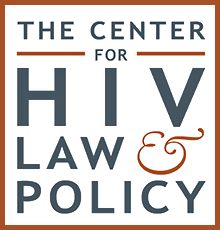Overview
Since 1989, Arkansas has criminalised HIV ‘exposure’ and non-disclosure through HIV-specific laws in the Criminal Code, which are actively enforced. People living with HIV may also be prosecuted using general criminal laws.
The HIV-specific criminal law, erroneously entitled ‘knowingly transmitting AIDS, HIV’, describes anyone living with HIV as a ‘danger to the public’, and makes it an offence to ‘expose’ another through blood transfer or ‘sexual penetration’ without first disclosing their HIV-positive status. ‘Sexual penetration’ does not require ejaculation and is defined broadly to include acts which pose no risk of transmission, such as performing oral sex and penetration by objects. There is no requirement for intent or transmission, and no defence for the use of protection. The law is a class A felony, carrying a penalty of up to 30 years’ imprisonment, a fine, and the possibility of registration as a sex offender. In 2018 this law survived a constitutional challenge.
We have received reports of more than ten cases of enforcement of this law in Arkansas, most of which involve incidents of sex without prior disclosure of HIV-positive status. Prosecutions have led to conviction even where transmission was impossible, such as in a 2019 case involving a man with an undetectable viral load, although this did result in a reduced sentence of probation rather than imprisonment. An additional HIV-specific criminal provision makes it a misdemeanour for people living with HIV to fail to disclose their status to medical professionals, which is punishable by up to one year imprisonment and a fine. We have not received any reports of prosecutions under this provision.
A 2023 analysis of enforcement of these laws in Arkansas by the Williams Institute revealed a significant underreporting of enforcement in the state. The report found that an estimated 108 people have come into contact with the law due to allegations of HIV crimes, with 119 HIV-related charges being laid. Almost all of these charges have related to the ‘exposure’ offence, with just four charges under the non-disclosure to a medical professional offence. The first case was brought in 1990, and there was at least one case charged in each year from 1994-2022, however case numbers have varied over time and there has not been a clear trend. In terms of demographics, there has been a small overrepresentation of black people and of men among those charged. In cases where the outcome is known, 80% resulted in conviction.
General criminal laws have also been used in at least one case. In 2010, a man living with HIV was charged with aggravated assault along with the HIV ‘exposure’ offence after allegedly spitting blood at police officers. This offence requires conduct which creates a ‘substantial danger of death or serious physical injury’ in a way which demonstrates ‘extreme indifference to the value of human life’. The man in this case was ultimately acquitted, however this case demonstrates that prosecutors in Arkansas may apply general laws to HIV ‘exposure’ cases.
Public health laws permit medical records to be released upon court order to assist prosecutions for HIV ‘exposure’. Furthermore, HIV testing can be compelled for certain sexual and sex work offences, the results of which can be shared with the alleged ‘victim’. Finally, people living with communicable diseases can be ordered to cease certain conduct and comply with testing, isolation, and quarantine, violation of which can result in imprisonment for up to one month for each day of violation.
For a detailed analysis of HIV criminalisation in Arkansas, as well as all other US states, see the Center for HIV Law and Policy report, HIV Criminalisation in the United States: a Sourcebook on State and Federal HIV Criminal Law and Practice.
Laws
Arkansas Code § 5-14-123
Exposing another person to human immunodeficiency virus
(a) A person with acquired immunodeficiency syndrome or who tests positive for the presence of human immunodeficiency virus antigen or antibodies is infectious to another person through the exchange of a body fluid during sexual intercourse and through the parenteral transfer of blood or a blood product and under these circumstances is a danger to the public.
(b) A person commits the offense of exposing another person to human immunodeficiency virus if the person knows he or she has tested positive for human immunodeficiency virus and exposes another person to human immunodeficiency virus infection through the parenteral transfer of blood or a blood product or engages in sexual penetration with another person without first having informed the other person of the presence of human immunodeficiency virus.
(c)
(1) As used in this section, “sexual penetration” means sexual intercourse, cunnilingus, fellatio, anal intercourse, or any other intrusion, however slight, of any part of a person’s body or of any object into a genital or anal opening of another person’s body.
(2) However, emission of semen is not required.
(d) Exposing another person to human immunodeficiency virus is a Class A felony.
Arkansas Code § 20-15-903
Advising physician or dentist required
(a) Before receiving any healthcare services of a physician or dentist, any person who is found to have human immunodeficiency virus (HIV) infection shall advise the physician or dentist that the person has human immunodeficiency virus (HIV) infection.
(b) Any person failing or refusing to comply with the provisions of subsection (a) of this section shall be guilty of a Class A misdemeanor and punished accordingly.
Arkansas Code § 5-13-204
Aggravated assault
(a) A person commits aggravated assault if, under circumstances manifesting extreme indifference to the value of human life, he or she purposely:
(1) Engages in conduct that creates a substantial danger of death or serious physical injury to another person;
(…)
(b) Aggravated assault is a Class D felony.
Further resources
Not all laws used to prosecute people living with HIV in this state are included on this page. For a comprehensive overview and analysis of HIV-related criminal and similar laws and policies, visit The Center for HIV Law and Policy






